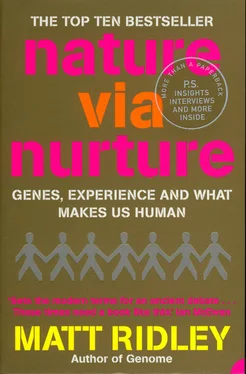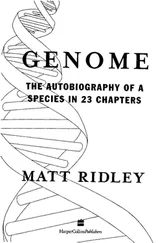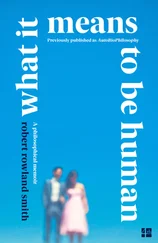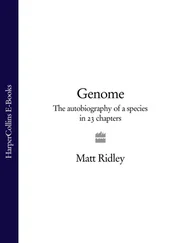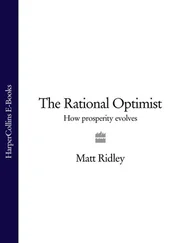Nature Via Nurture
Genes, Experience and What Makes Us Human
Matt Ridley

For Jim
Cover Page
Title Page Nature Via Nurture Genes, Experience and What Makes Us Human Matt Ridley
Dedication For Jim
PROLOGUE Twelve hairy men
CHAPTER ONE The paragon of animals
CHAPTER TWO A plethora of instincts
CHAPTER THREE A convenient jingle
CHAPTER FOUR The madness of causes
CHAPTER FIVE Genes in the fourth dimension
CHAPTER SIX Formative years
CHAPTER SEVEN Learning lessons
CHAPTER EIGHT Conundrums of culture
CHAPTER NINE The seven meanings of ‘gene’
CHAPTER TEN A budget of paradoxical morals
EPILOGUE Homo stramineus – the straw man
Acknowledgements
End Notes
Index
P.S.
About the author
Portrait
Snapshot
Life Drawing
Top Ten Favourite Reads
About the book
A Critical Eye
Love Actually
Read on
Have You Read?
If You Loved This
Find Out More
About the Author
By the same author
Copyright
About the Publisher
PROLOGUE Twelve hairy men
Perverse Mankind! Whose wills, created free,
Charge all their woes on absolute Decree;
All to the dooming Gods their guilt translate,
And follies are miscall’d the crimes of Fate.
Homer’s Odyssey , translated by Alexander Pope 1
‘Revealed: the secret of human behaviour,’ read the banner headline in the British Sunday newspaper the Observer on 11 February 2001. ‘Environment, not genes, key to our acts.’ The source of the story was Craig Venter, the self-made man of genes who had built a private company to read the full sequence of the human genome (his own) in competition with an international consortium funded by taxes and charities. That sequence – a string of three billion letters composed in a four-letter alphabet containing the complete recipe for building and running a human body – was to be published later in the week. The first analysis had revealed that there were just 30,000 genes in the human genome, not the 100,000 that many had been estimating up until a few months before.
Details had already been circulated to journalists under embargo. But Venter spilt the story at an open meeting in Lyons on 9 February. Robin McKie of the Observer was in the audience and recognised at once that the 30,000 figure was now public. He went up to Venter and asked him if he realised that this broke the embargo; he did. Not for the first time in the increasingly bitter rivalry over the genome project, Venter’s version of the story would hit the headlines before that of his rivals. ‘We simply do not have enough genes for this idea of biological determinism to be right,’ Venter said to McKie. The wonderful diversity of the human species is not hard-wired in our genetic code. Our environments are critical.’ 2
Seeing the Observer’s first edition, other newspapers followed suit. ‘Genome discovery shocks scientists: genetic blueprint contains far fewer genes than thought – DNA’s importance downplayed,’ proclaimed the San Francisco Chronicle later that Sunday. 3The scientific journals promptly lifted the embargo and the story was in newspapers around the world. ‘Analysis of human genome discovers far fewer genes,’ intoned the New York Times . 4Not only had McKie scooped the story; Venter had set the theme.
This was the making of a new myth. In truth, the number of human genes changed nothing. Venter’s remarks concealed two massive non sequiturs: first, that fewer genes implied more environmental influences, and second, that 30,000 genes were ‘too few’ to explain human nature where 100,000 would have been enough. As Sir John Sulston, one the leaders of the Human Genome Project, put it to me a few weeks later, just 33 genes, each coming in just two varieties (such as on or off), would be enough to make every human being in the world unique. There are more than ten billion ways of flipping a coin 33 times. So 30,000 does not look such a small number after all. Two multiplied by itself 30,000 times produces a number larger than the total number of particles in the known universe. Besides, if fewer genes meant more free will, that made fruit flies freer than people, bacteria freer still, and viruses the John Stuart Mills of biology.
Fortunately, there was no need for such sophisticated calculations to reassure the population. People were not seen weeping in the street at the humiliating news that our genome had less than twice as many genes as a worm’s. Nothing had been hung on the number 100,000, which was just a bad guess. But it was fitting after a century of increasingly repetitive argument over environment versus heredity that the publication of the human genome should be broken on the Procrustean bed of nature-versus-nurture. It was, with the possible exception of the Irish question, the intellectual argument that had changed least in the century just ended. It had divided fascists from communists as neatly as their politics. It had continued unabashed through the discovery of chromosomes, DNA and Prozac. It was fated to be just as bitterly debated in 2003 as it was in 1953, the year of the discovery of the structure of the gene, or in 1900, the year modern genetics began. Even the human genome, at its birth, was being claimed for nurture-versus-nature.
For more than fifty years sane voices have called for an end to the debate. Nature-versus-nurture has been declared everything from dead and finished to futile and wrong – a false dichotomy. Everybody with an ounce of common sense knows that human beings are a product of a transaction between the two. Yet nobody could stop the argument. Immediately after calling the debate futile or dead, the protagonist would charge into the battle himself and start accusing others of overemphasising one or other extreme. The two sides of this argument are the nativists, who I will sometimes call geneticists, hereditarians or naturians; and the empiricists, who I will sometimes call environmentalists or nurturists.
Let me at once play my cards face up. I believe human behaviour has to be explained by both nature and nurture. I am not backing one side over the other. But that does not mean I am taking a ‘middle of the road’ compromise. As Jim Hightower, a Texan politician, once said: ‘There ain’t nothing in the middle of the road but a yellow line and a dead armadillo.’ I intend to make the case that the genome has indeed changed everything, not by closing the argument or winning the battle for one side or the other, but by enriching it from both ends till they meet in the middle. The discovery of how genes actually influence human behaviour, and how human behaviour influences genes, is about to recast the debate entirely. No longer is it nature-versus-nurture, but nature-via-nurture. Genes are designed to take their cues from nurture. To appreciate what has happened, you will have to abandon cherished notions and open your mind. You will have to enter a world where your genes are not puppet masters pulling the strings of your behaviour, but are puppets at the mercy of your behaviour; a world where instinct is not the opposite of learning, where environmental influences are sometimes less reversible than genetic ones, and where nature is designed for nurture. These cheap and seemingly empty phrases are coming to life for the first time in science. I intend to tell bizarre stories from the deepest recesses of the genome to show how the human brain is built for nurture. My argument in a nutshell is this: the more we lift the lid on the genome, the more vulnerable to experience genes appear to be.
Читать дальше
